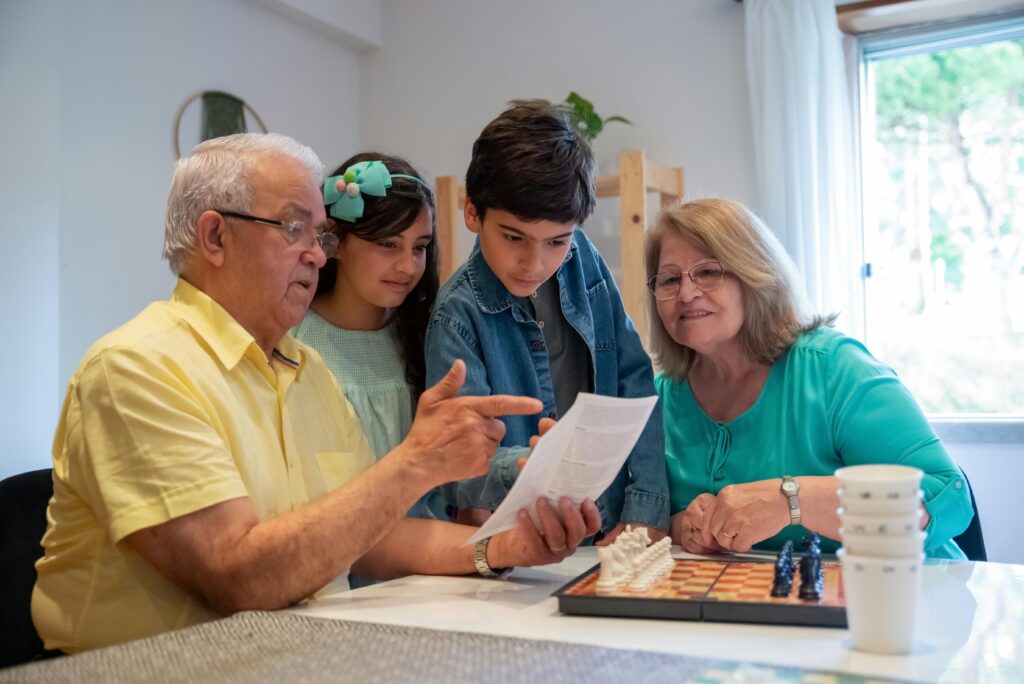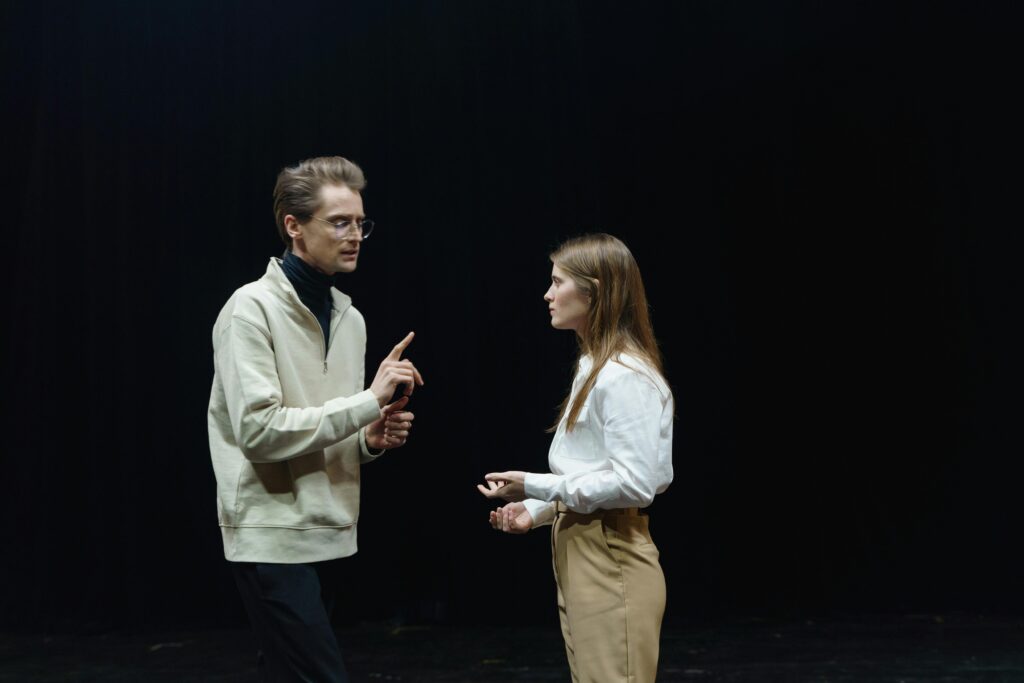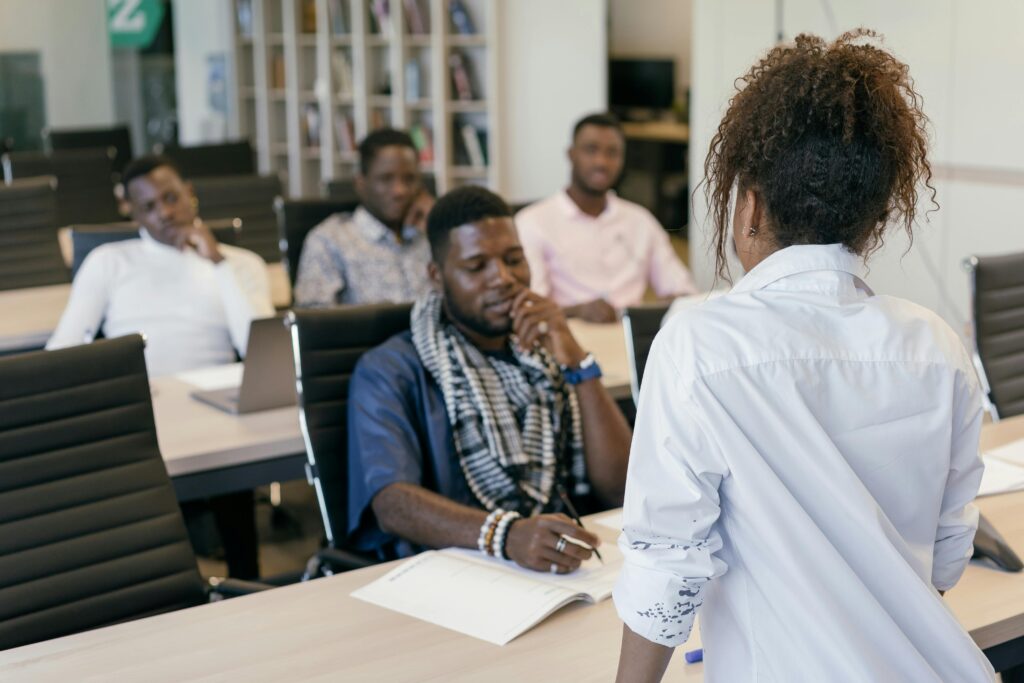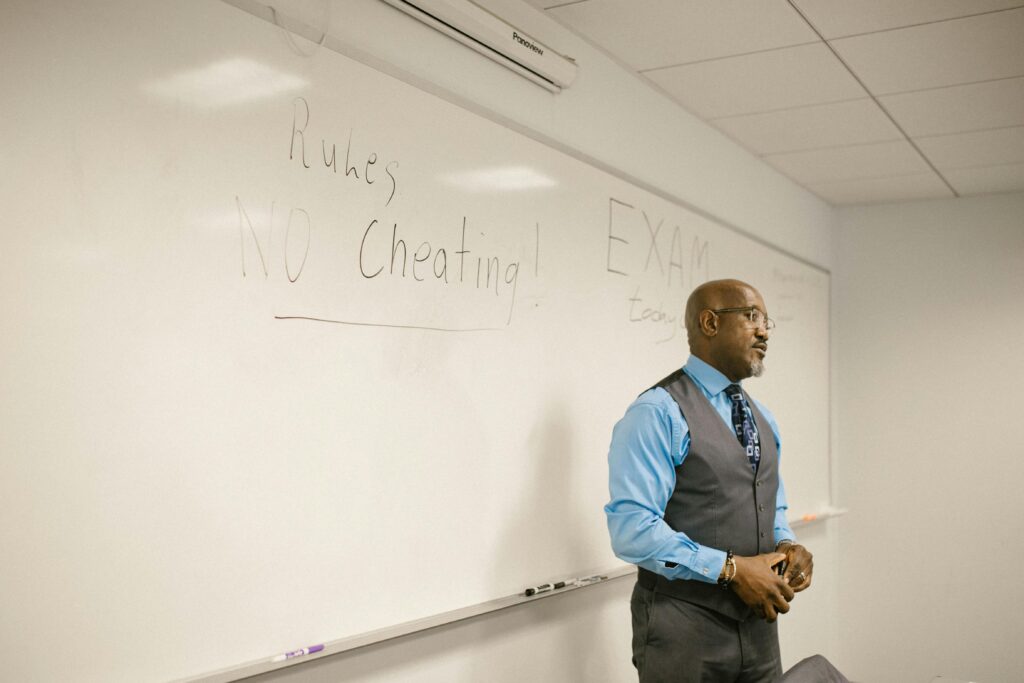Scholarly positions in higher instruction frame the spine of colleges and colleges, giving not as it were instruction but driving forward investigation and advancement. These parts are different, extending from instructing and investigating to authoritative obligations and open engagement. This article investigates the different scholastic positions, their duties, capabilities required, career ways, and the challenges and rewards related to these parts.

1.1 Partner Teachers
Collaborator Teachers are regularly early-career scholastics who have as of late completed their PhDs or postdoctoral investigations. This position is frequently the primary step on the residency track, a way that can lead to changeless scholastic arrangements.
Obligations:
Educating:
Collaborator Teachers more often than not instruct undergrad and some of the time graduate courses. They create course materials, convey addresses, and assess understudy execution.
Inquire about:
They are anticipated to conduct unique investigations, distribute their discoveries in peer-reviewed diaries, and display them at scholastic conferences.
Benefit:
Inclusion in departmental and college committees, exhorting understudies, and taking an interest in outreach exercises.
Capabilities:
A PhD in their field of skill.
Prove of investigating potential, frequently illustrated through distributions and conference introductions.
Instructing encounter, even though this will now and then be picked up concurrently with the position.
1.2 Relate Teachers
Relate Teachers have ordinarily been in the scholarly community for a long time and have illustrated critical accomplishments in educating, inquiring about, and benefiting.

Duties:
Educating:
Frequently more included in educational programs improvement and may coach junior workforce.
Investigate:
Anticipated to have a strong inquiry about the program with reliable distribution and grant securing.
Benefit:
More noteworthy association in regulatory obligations, such as serving on college committees, and may take on administration parts inside their office.
Capabilities:
A few a long time of encounter as a Partner Teacher.
A significant record of distributed inquiries about.
Demonstrated brilliance in instructing and benefit.
1.3 Full Teachers
Full Teachers are senior staff individuals who have illustrated exceptional accomplishments in their careers.
Instructing:
Educate progressed courses and administer graduate understudies.
Investigate:
Lead huge inquiries about ventures and collaborate over disciplines.
Benefit:
Critical authoritative parts such as division chair or association in college administration.
Capabilities:
Broad distribution record.
Acknowledgment as a pioneer in their field, regularly through grants and solicitations to talk at major conferences.
Illustrated authority and mentorship inside their institution.
Speakers and Teachers
Speakers and educators center fundamentally on instructing. These positions can be either full-time or part-time and may or may not be on a residency track.

Educating:
Create and convey course substance, regularly over a wide extent of subjects inside their teaching.
Exhorting:
Give scholarly direction to understudies.
Course Advancement:
Routinely overhaul course materials to keep pace with improvements in their field.
Capabilities:
A master’s degree is regularly adequate, even though a PhD is favored for higher-level courses.
Critical instructing involvement and an illustrated commitment to instruction.
2.1 Aide Staff
Aide Staff are part-time teachers who instruct particular courses. They frequently have careers exterior the scholarly world and bring down-to-earth encounters to their teaching.
Educating:
Instruct courses based on their skill, frequently bringing real-world encounters to the classroom.
Course Planning:
Plan syllabi, plan addresses, and survey understudy execution.
Capabilities:
Proficient encounter in their field.
Progressed degree pertinent to the subject they are educating, even though broad proficiency encounters can some of the time substitute for scholastic capabilities.
3.1 Postdoctoral Analysts
Postdoctoral Analysts, or postdocs, are people who have completed their PhDs and are locked in encouraged to investigate to extend their ability.

Inquire about:
Conduct autonomous or administered investigative ventures.
Distributing:
Type in and distribute inquiries about discoveries in scholastic diaries.
Collaboration:
Work closely with the workforce and other analysts, regularly contributing to bigger ventures.
Capabilities:
A PhD in a pertinent field.
A solid investigative foundation with distributions.
3.2 Inquire about Researchers and Investigate Colleagues
These positions are regularly more lasting than postdoctoral roles and include driving inquiries about ventures.
Obligations:
Extend Administration:
Supervise investigative ventures, counting securing financing, and overseeing budgets.
Mentorship:
Oversee postdoctoral analysts and graduate understudies.
Collaboration:
Work with scholastic and industry accomplices.
Capabilities:
A PhD and critical postdoctoral involvement.
Demonstrated track record of inquiring about fabulousness and financing procurement.
- Regulatory Scholastic Positions
4.1 Office Chairs
Division Chairs are workforce individuals who too take on critical authoritative duties for their office.

Duties:
Administration:
Give vision and heading for the division.
Administration:
Handle regulatory assignments such as budgeting, enlisting, and assessment of staff execution.
Backing:
Speak to the office inside the broader college organization.
Capabilities:
Ordinarily a Full Teacher with broad involvement.
Solid administration and organizational abilities.
4.2 Dignitaries
Dignitaries manage a college or school inside the college, giving authority and vital courses.
Obligations:
Vital Arranging:
Create and actualize scholarly arrangements and programs.
Gathering pledges:
Secure financing through gifts and gifts.
Representation:
Act as the confront of the college/school both inside and exterior the college.
Capabilities:
Broad scholarly and authoritative involvement.
Demonstrated administration capacity and victory in gathering pledges.
5.1 Challenges

Workload:
Adjusting education, inquiring about, and authoritative obligations can be overpowering.
Subsidizing:
Securing investigative subsidizing is profoundly competitive and time-consuming.
Work Security:
Non-tenure track positions and aide parts regularly come with work uncertainty and lower pay.
Weight to Distribute:
The “distribute or die” culture can lead to noteworthy stretch and burnout.
5.2 Rewards
Mental Flexibility:
The capacity to seek after free investigate interface.
Affect:
Forming the minds of understudies and contributing to the headway of information.
Community:
Being a portion of a scholarly community that values learning and revelation.
Career Movement:
Openings for headway to higher scholarly and regulatory positions.
6.1 Early Career
The travel to a scholastic career regularly starts with getting a significant undergrad degree, followed by a master’s degree and a PhD. This period is characterized by seriously thinking about, investigating, and frequently a few instructing involvements as an educating collaborator.

Key Steps:
Graduate Considers:
Develop information in a particular field, lock in unique inquiries, and get ready for a doctoral thesis.
Inquire about and Distributions:
Begin distributing inquiries about discoveries in scholarly diaries and showing them at conferences.
Instructing Involvement:
Pick up encounters through assistantships or aide-educating positions.
6.2 Mid-Career
After completing a PhD, numerous scholastics take on postdoctoral inquiries about positions to advance and sharpen their inquire about aptitudes and construct a distribution record. This organization is basic for securing a tenure-track position.
Key Steps:
Postdoctoral Investigate:
Conduct progressed investigations, frequently driving to noteworthy distributions.
Organizing:
Construct proficient systems through conferences, collaborations, and scholarly social orders.
Work Applications:
Apply for tenure-track positions, which include a competitive determination handle.
6.3 Tenure-Track and Residency
Securing a tenure-track position may be a critical turning point. The residency track regularly endures six to seven long time, amid which the scholarly must illustrate greatness in educating, investigating, and benefiting.
Key Steps:
Trial Period:
Fulfill duties as a Right-hand Teacher, counting educating, investigating, and committee work.
Residency Survey:
Experience a thorough assessment prepared based on distributions, instructing assessments, benefit commitments, and outside surveys.
Advancement to Relate Teacher:
Upon gaining residency, advancement to Relate Teacher regularly takes after.
6.4 Senior Career
Tenured teachers frequently proceed to develop their careers by seeking higher scholarly and regulatory parts. They may end up as Full Teachers, Office Chairs, Dignitaries, or indeed higher regulatory positions such as Executive or President.
Key Steps:
Proceeded Brilliance:
Keep up a tall level of efficiency in educating, investigating, and benefiting.
Administration Parts:
Take on more noteworthy regulatory duties and authority positions.
Mentorship:
Tutor junior staff and contribute to the advancement of their careers.
7.1 Interdisciplinary Research
Progressively, scholarly work rises above conventional departmental boundaries, driving to intrigue inquire about that addresses complex worldwide challenges.
Cases:

Natural Considers:
Combines science, chemistry, financial matters, and arrangement considerations.
Advanced Humanities:
Coordinating innovation and conventional humanities disciplines to analyze social artifacts.
7.2 Collaborative Inquire about
Collaboration with other scholastics, industry accomplices, and government organizations is basic for numerous investigative ventures, especially those requiring noteworthy assets or assorted mastery.
Benefits:
Asset Sharing:
Get to share financing, gear, and skills.
Broader Affect:
Expanded potential for inquiry to have a real-world effect.
- Worldwide and Online Instruction
8.1 Worldwide Instruction
Numerous colleges emphasize worldwide instruction, empowering staff and understudies to lock in universal collaborations and trades.
Openings:
Think about Overseas Programs:
The workforce can lead ponder overseas programs, upgrading their instructing with worldwide points of view.
Universal Inquire about:
Collaborating with analysts around the world to address worldwide issues.
8.2 Online Instruction
The rise of online instruction has changed the scholarly scene, advertising unused openings and challenges for staff.
Openings:
MOOCs:
Staff can reach a worldwide gathering of people through Enormous Open Online Courses.
Mixed Learning:
Combining online and face-to-face educating strategies to upgrade learning encounters.
Challenges:
Adjustment:
Creating abilities to educate viably online.
Engagement:
Finding ways to lock in and bolster understudies remotely.
9.1 Educating Innovations
Progressions in innovation have revolutionized education strategies, giving instruments that upgrade both in-person and online instruction.

Devices:
Learning Administration Frameworks (LMS):
Stages like Canvas or Chalkboard encourage course administration and communication.
Instructive Program:
Instruments such as reenactments, virtual labs, and intelligent modules improve learning.
9.2 Investigate Advances
Innovation moreover plays a pivotal part in progressing inquiry about capabilities over disciplines.
Devices:
Information Examination Software:
Programs like SPSS, R, and Python empower complex information investigation.
Research facility Hardware:
Progressed hardware such as electron magnifying lenses, DNA sequencers, and spectrometers.
10.1 Scholastic Opportunity
Scholastic flexibility may be a foundation of higher instruction, permitting researchers to seek after truth and information without undue limitation.
Significance:
Development:
Energizes striking and inventive inquiry about.
Basic Request:
Bolsters the addressing of set-up standards and speculations.
10.2 Morals in the Scholarly World
Moral contemplations are essential to keeping up astuteness and believing in scholarly work.
Key Regions:
Investigate Morals:
Guaranteeing genuineness, precision, and regard in conducting and detailing investigations.
Instructing Ethics:
Keeping up reasonableness, straightforwardness, and regard within the classroom.
Proficient Conduct:
Maintaining benchmarks of behavior that reflect well on the scholastic community.
11.1 Advancing Parts
The scene of scholastic positions is persistently advancing, affected by changes in innovation, society, and the economy.
Patterns:
Intrigue Approaches:
Expanding accentuation on fathoming complex worldwide issues through intrigue inquire about.
Digital Transformation:
More prominent dependence on computerized instruments and stages for both instructing and inquiring about.
11.2 Backing for the Scholarly Community
Scholastics regularly play a crucial part in pushing for the esteem of higher instruction and inquiry in society.
Center Zones:
Open Engagement:
Communicating the significance and effect of scholastic work to the open.
Arrangement Impact:
Locks in with policymakers to advocate for inquiry about financing and instructive approaches.
Conclusion
Scholastic positions are indispensable to the mission of higher education institutions. They include a wide run of parts, each contributing to instructing, inquiring about, and benefiting. The way to a scholarly career is challenging but fulfilling, advertising openings for mental development, proficient advancement, and noteworthy commitments to society. As the scholarly landscape continues to advance, these positions will adjust, reflecting the changing needs of understudies, society, and the worldwide community. Despite the challenges, the commitment to progressing information and teaching future eras remains at the heart of the scholarly world.
